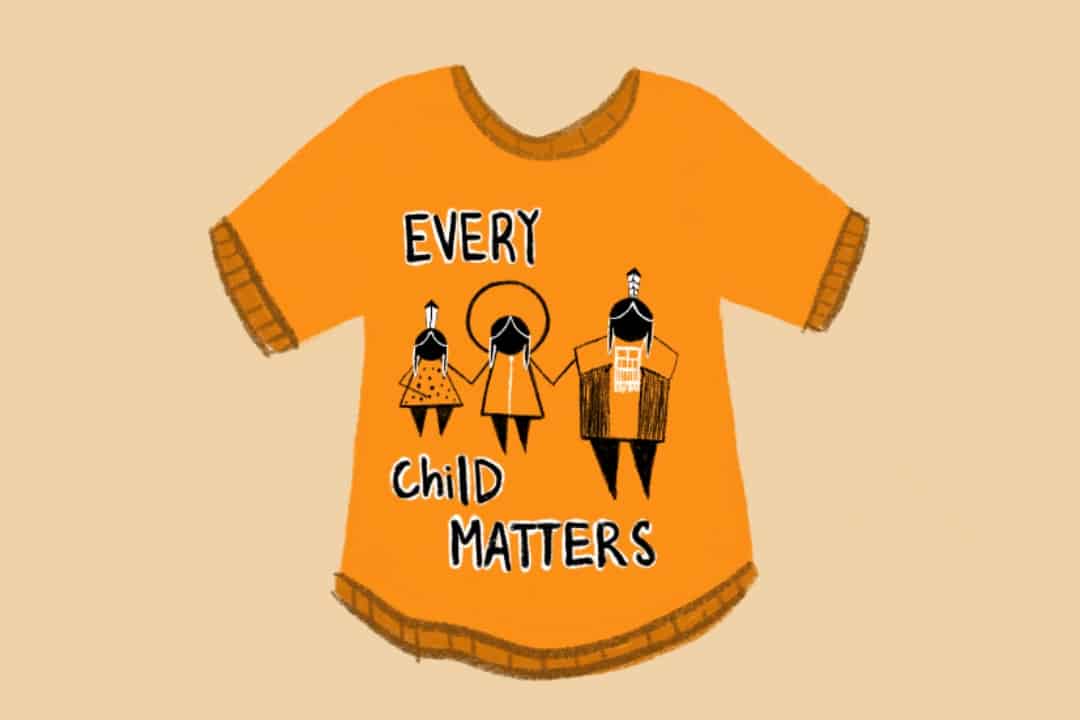Content warning: This article contains discussions about the atrocities committed against Indigenous peoples.
The Cree writer Michelle Good, whose most recent novel is the prize-winning Five Little Indians, recently said in an article for CBC that she felt the National Day for Truth and Reconciliation deserved greater attention. “It needs to be considered in the same vein as Remembrance Day,” she said.
Despite the many voices calling for greater strides toward reconciliation, not much substantial change for Indigenous peoples in Canada has manifested. After all, it took the discovery of around 200 potential child burial sites at a former residential school in Kamloops, British Columbia for the federal government to institute the statutory holiday.
Even the land acknowledgements common at U of T are an example of the lack of substantial change. No doubt they have raised awareness within our community and beyond, but what tangible impact, in any shape and form, has actually been executed as a result of them? And what lengths are settlers willing to go to change the living conditions for Indigenous peoples in Canada?
Like other social movements, including Black Lives Matter, reconciliation has become a source of profit for companies looking to improve their reputations. Companies can claim to raise awareness without having to put in any effort to foster substantial change.
For example, Hudson’s Bay has received a lot of backlash for selling “Every Child Matters” orange shirts ahead of the first National Day for Truth and Reconciliation, which was on September 30. Before Canada became a country, Hudson’s Bay was heavily involved in the fur trade and had set up much of its property and trading posts on Indigenous land. While Hudson’s Bay appears to be promoting tolerance and equity through the orange shirts, one may wonder how much they will actually help to further reconciliation.
The company’s spokesperson said that all the orange shirt sales will be given to the Orange Shirt Society, a British Columbia-based non-profit working to raise awareness about the residential school system’s effects. However, it is unclear whether these actions would create real change — especially in comparison to places like Velma’s House in Winnipeg, Manitoba, which directly helps Indigenous women subjected to violence and exploitation. Would residential school survivor Phyllis Webstad, who had her favourite orange shirt taken from her on her first day of school — the story which inspired the Orange Shirt Day movement in the first place — feel honoured to have her experience made into a source of profit for Hudson’s Bay?
“When we look at their history, even within the past 100 or so years, [Hudson’s Bay had a] role with Inuit [and] the High Arctic relocation program, where families were taken from… northern Québec to Nunavut,” said Dani Lanouette, who is Anishinaabe from Neyaashiinigmiing and Algonquins of Barriere Lake, in an article for CBC. She is referring to when the Canadian government persuaded a group of Inuit people to leave their homes in the 1950s and promised that they could return if they were unhappy — a promise that the government failed to carry out. According to Lanouette, Hudson’s Bay played a part in causing the starvation and food insecurity of the people who were relocated.
While Hudson’s Bay claimed to “[recognize] the role it played in the colonization of Canada,” it is extremely hypocritical and performative for Hudson’s Bay to profit off the Indigenous suffering that the company itself contributed to. Lanouette said, “To see a company that has a very colonial history — a history of colonial violence within so-called Canada — to see that they were now selling orange shirts actually made me nauseous. It was so gross to me.”
Reconciliation — creating a respectful relationship between Indigenous peoples and settlers — is a goal we should all share despite our inherent differences. However, reconciliation cannot occur through performative actions, like marketing orange shirts, especially if the company marketing them has a long history of hurting the groups it is claiming to support.
As Good remarked, “I think more non-Indigenous people will participate [in Truth and Reconciliation Day this year] and I think that’s important. I think it’s important [for] both non-Indigenous and Indigenous people to come together and to acknowledge this reality together.”
Unity and tolerance alone cannot completely solve the systemic inequalities between settlers and Indigenous peoples. However, when that unity and tolerance are genuine, they are certainly small steps that can contribute to justice and change.
Elim Evangeline Yeung is a fourth-year professional writing, communications, and English student at UTM.
If you or someone you know is in distress because of the recent news about residential schools, you can call:
- Indian Residential School Crisis Line at 1-866-925-4419 (available 24 hours a day),
- Hope for Wellness Helpline at 1-855-242-3310,
- KUU-US Crisis Line at 250-723-4050,
- Talk4Healing Help Line at 1-855-554-4325.


